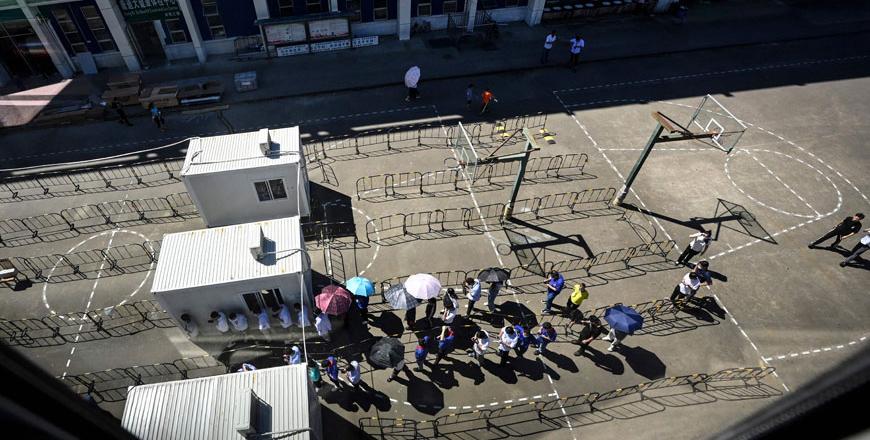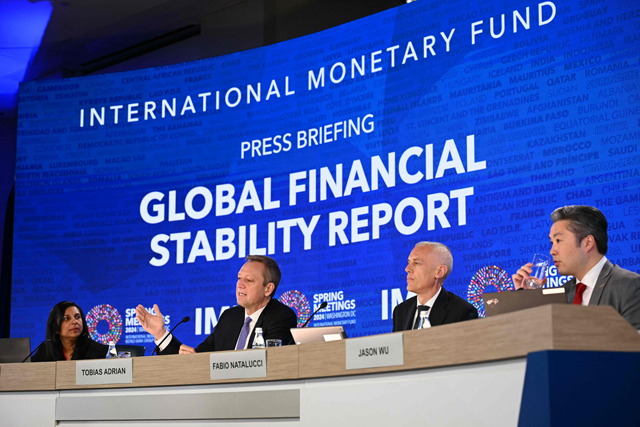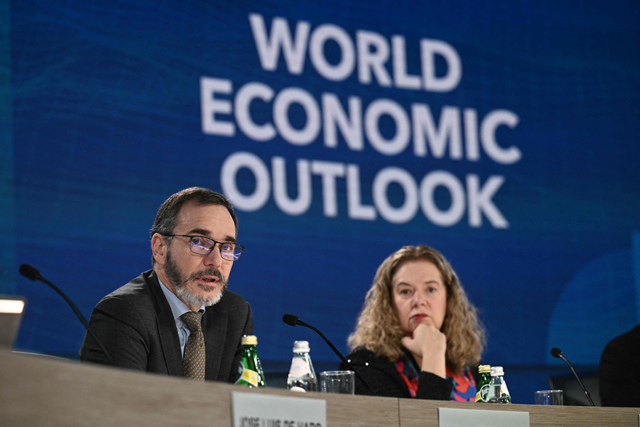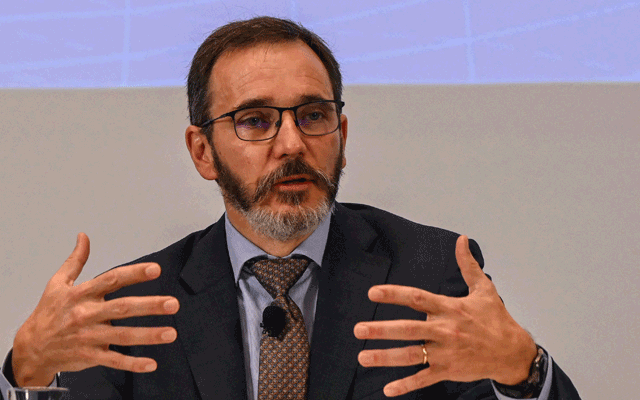You are here
IMF cuts global growth outlook amid US, China slowdowns
By AFP - Jul 26,2022 - Last updated at Jul 26,2022

This photo taken on July 11 shows employees of electric carmaker BYD lining up to be tested for the COVID-19 coronavirus at the company headquarters in Shenzhen as the International Monetary Fund downgraded its outlook for global growth on Tuesday due to on-going COVID-19 lockdowns, increasing inflation and growing recession fears (AFP photo)
WASHINGTON — Surging inflation and severe slowdowns in the United States and China prompted the International Monetary Fund (IMF) to downgrade its outlook for the global economy this year and the next year, while warning on Tuesday that the situation could get much worse.
"The outlook has darkened significantly since April. The world may soon be teetering on the edge of a global recession, only two years after the last one," IMF Chief Economist Pierre-Olivier Gourinchas said.
In its latest World Economic Outlook, the International Monetary Fund cut the 2022 global gross domestic product (GDP) estimate to 3.2 per cent, four-tenths of a point lower than the April forecast, and about half the rate seen last year.
Last year's "tentative recovery" from the pandemic downturn "has been followed by increasingly gloomy developments in 2022 as risks began to materialise", the report said.
"Several shocks have hit a world economy already weakened by the pandemic," including the war in Ukraine which has driven up global prices for food and energy, prompting central banks to raise interest rates sharply, the IMF said.
Ongoing COVID-19 lockdowns and a worsening real estate crisis have hindered economic activity in China, while the Federal Reserve's aggressive interest rate hikes are slowing US growth sharply.
But the IMF offered a stark caveat to the forecasts, cautioning that "risks to the outlook are overwhelmingly tilted to the downside", and if they materialise could push the global economy into one of the worst slumps in the past half-century.
Key among the concerns is the fallout from the war in Ukraine including the potential for Russia to cut off natural gas supplies to Europe, as well as a further spike in prices and a food shortage due to the chokehold the war has on grain supplies that could trigger famine.
In an ominous warning, the WEO said "such shocks could, if sufficiently severe, cause a combination of recession accompanied by high and rising inflation ['stagflation']."
That would slam the brakes on growth, slowing it to 2 per cent in 2023. The global growth rate has only been slower five times since 1970, the IMF said.
Inflation priority
The top priority for policymakers is to rein in soaring prices, even at the cost of inflicting pain on their citizens, the fund said, since the damage caused by allowing inflation to rage out of control would be much worse.
Gourinchas, in a blog post about the report, noted that the "synchronised" moves by major central banks to deal with the inflation threat "is historically unprecedented, and its effects are expected to bite".
"Tighter monetary policy will inevitably have real economic costs, but delaying it will only exacerbate the hardship," he said.
The IMF now sees consumer prices jumping 8.3 per cent this year, nearly a full point higher than previously forecast, while emerging market economies face a 9.5 per cent increase in consumer prices.
But, "further supply-related shocks to food and energy prices from the war in Ukraine could sharply increase headline inflation."
That would increase the pain for poor nations least able to withstand the shock, where food makes up a larger share of family budgets.
US, China slowdown
While the global economy did a bit better than expected in the first three months of the year, it appears to have "shrunk in the second quarter — the first contraction since 2020", the IMF said.
The IMF downgraded growth forecasts for most countries, including big revisions for the United States and China, which cut more than a point off the prior forecasts.
The fund now sees US growth this year of just 2.3 per cent, amid slowing consumer spending and rising interest rates, and the report said a recession — defined by two quarters of negative growth — may already have begun.
China's economy is expected to slow dramatically in 2022, expanding just 3.3 per cent — the lowest in more than four decades other than the 2020 pandemic crisis — due to COVID concerns and the "worsening crisis" in the property sector, the report said.
"The slowdown in China has global consequences: Lockdowns added to global supply chain disruptions and the decline in domestic spending are reducing demand for goods and services from China's trade partners," the report said.
There were some exceptions to the gloomy outlook, including upgrades for Italy, Brazil and Mexico, as well as for Russia which is still expected to contract but is benefitting from rising oil prices due to Western sanctions, the WEO said.
Related Articles
WASHINGTON — The International Monetary Fund (IMF) has raised its outlook for the global economy this year, while maintaining a gloomy forec
WASHINGTON — The United States is very close to achieving a soft landing, the rare feat of tackling inflation without spurring a long recess
WASHINGTON — Global growth is set to be higher than expected this year, the IMF said on Monday, raising its forecast on surprisingly strong


















